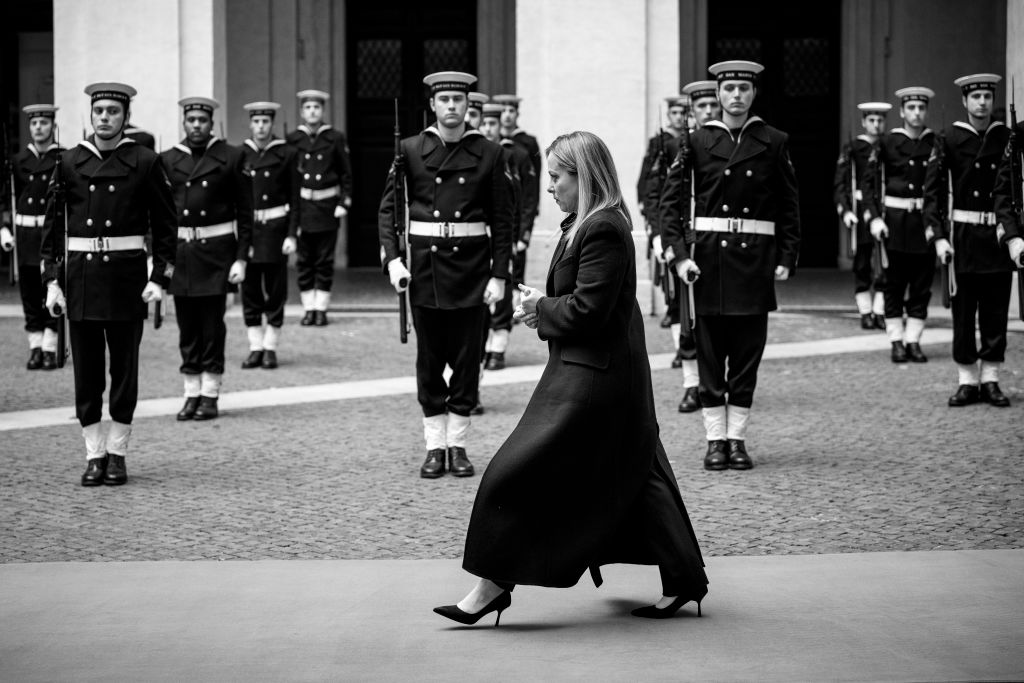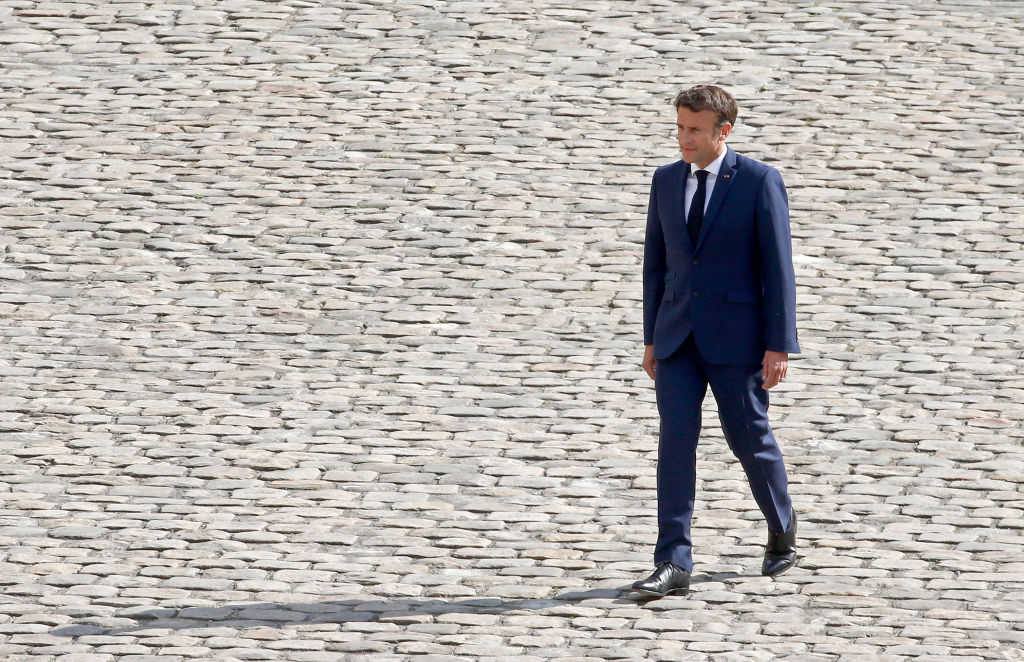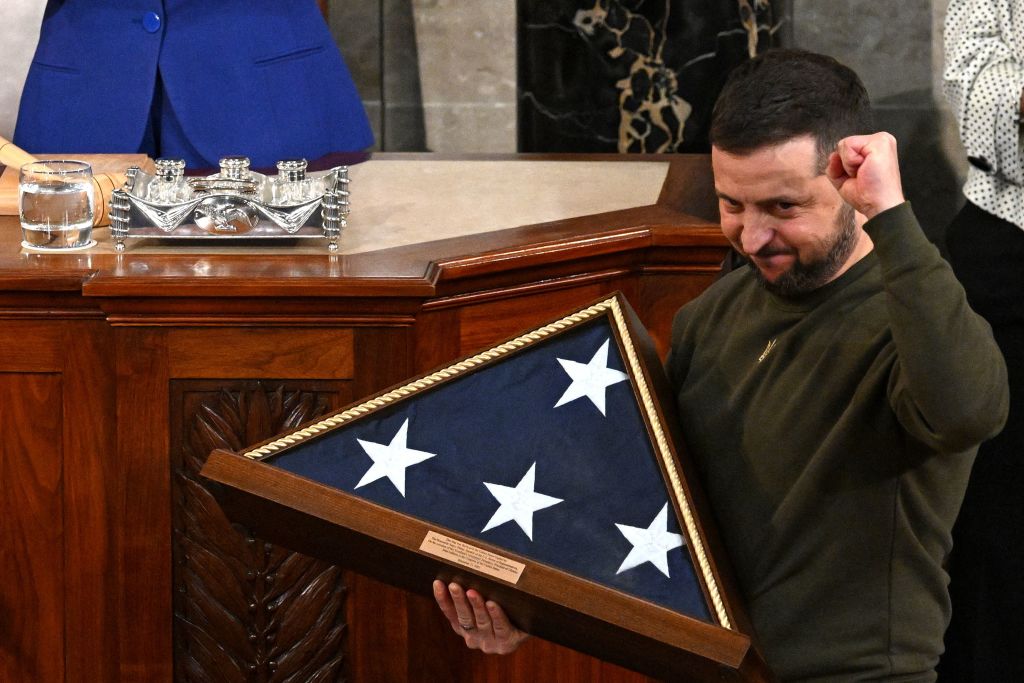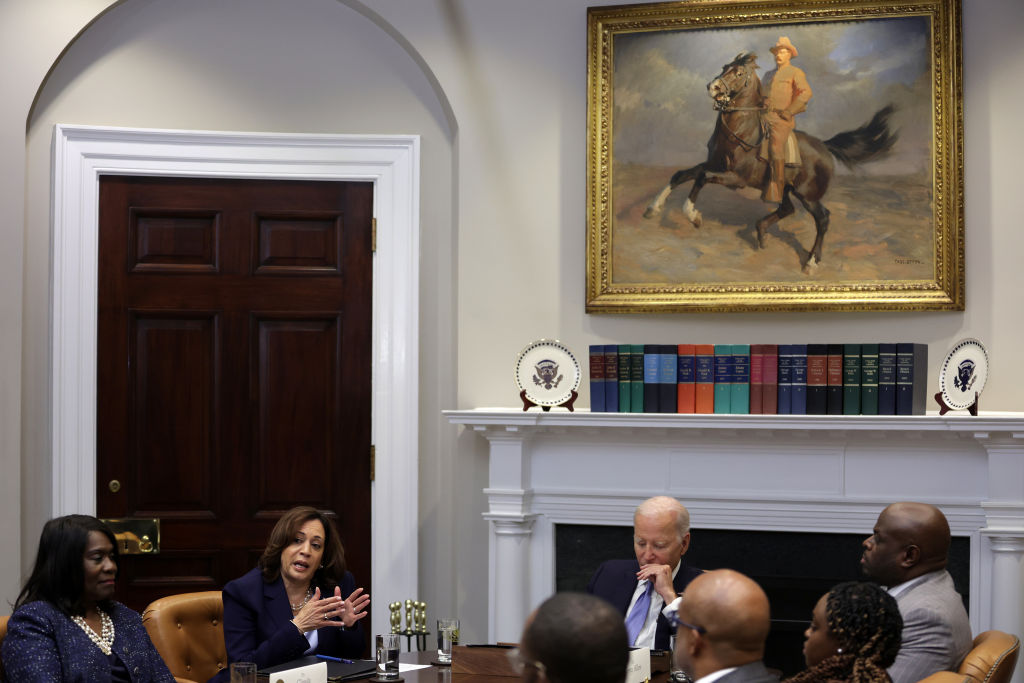France deserves better than a politics of technocratic Europhilia.
Meloni Ascends

Italy’s new prime minister has steered a shrewd course.
Since the fall of the Roman Empire, foreign influence has had a significant presence in Italian politics. Greeks, Barbarians, Normans, Spanish, French, Austrians, Germans, and Americans have all occupied or colonized Italian soil, and the Vatican has maintained a centuries long influence over Italian affairs as well. Italy’s political leaders have long recognized the practical necessity of forming advantageous alliances.
After Giorgia Meloni and her coalition partners came to power in the Italian elections last fall, some critics of reflexive Atlanticism expressed hope that her government would break with the antagonistic stance toward Russia espoused by the U.S.-led NATO alliance. These hopes were met with disappointment when Meloni made clear that Italy would retain strong support for Ukraine, as well as close ties and coordination with Washington and London.
Writer Christopher Caldwell has noted that the woke leftist ideas that Meloni opposes so strongly “come out of American academic culture, are imposed by American civil-rights law, and are promoted abroad by American military and economic might,” which makes Meloni’s support of Washington’s foreign policy agenda a contradiction. But ideological consistency is for political theorists and pundits. Meloni is neither a theorist nor a pundit but is the leader of a great nation in a time of peril. From the standpoint of realpolitik, her contradictions are simply common sense. A decisive break with Washington is simply not an option for Meloni, nor is it an option for any other Italian leader, due to how deep foreign influence runs in Italy’s political and economic institutions.
The European Union maintains significant leverage over the Italian economy and fiscal policy, and could send the country into recession simply by invoking some bureaucratic pretense with which to withhold EU-controlled funds. Additionally, the EU could lean on President Mattarella to take various actions which would make governing impossible for Meloni. For Italy, the EU has been the biggest headache and the most active meddler in Italian affairs. Against Brussels, Meloni has chosen the Washington-London axis of the transatlantic alliance in part because she has a genuine affinity for Anglo-flavored conservatism and in part because this faction is less interested in Italy’s domestic policies. There is also the reality that most Americans have a strong affinity for Italy while Northern Europeans tend to be disdainful and snobbish toward Italy as a country and Italians as a people.
Washington’s initial fears about Meloni’s rise have faded. The establishment media has abandoned its original practice of labeling her as a “neo-fascist” successor to Mussolini and now largely describe her as either right-wing, conservative, or a nationalist. The most recent New York Times profile of Meloni was not about her refusal to allow shiploads of migrants to dock at Italian ports or her recent trip to Iraq, where she secured Italian partnerships in oil and gas production, but about her affinity for wearing Armani. In other words, Meloni has been invited in from the cold, but not for the reasons her critics assume. Her pivot has been on style, not on substance. She speaks and conducts herself in the manner of a head of government, in contrast to less disciplined right-wing populists who wasted entire presidential terms behaving as if they were still powerless opposition candidates on the campaign trail.
By successfully courting Washington, Meloni pulled off a geopolitical coup. After the headaches inflicted by Macron and Scholz, Meloni’s drama-free and friendly posture came as a pleasant surprise for the Americans. For Meloni, it was the natural move to make. The Ukraine War and sanctions against Russia would not be concluded by carrying out a political kamikaze mission to undercut it, it would just result in a rapid removal from power. By accepting the reality of Italy’s position within the NATO security framework, Meloni has kept herself in the game. And by continuing to play the game, Meloni has the opportunity to gain for Italy a greater degree of sovereignty against EU centralization.
Two major preconditions must be met before Italy even has the power to dissent from the transatlantic alliance to any significant degree. The Italian economy and fiscal regime must be strong and independent enough to deny the Eurocrats the leverage they currently possess, and the Italian constitution must be reformed and a presidential system enacted to give Italian leaders the ability to maintain a stable government through short-term crises. American presidents benefit from set terms. Painful decisions can be made early in a presidency with some hope that they pay off come re-election time. In Italy, governments routinely fall, and reforms are reversed before their benefits are realized.
Since the end of WWII, the average government in Rome has lasted only 14 months. Meloni’s task is to upset that historical trend, and she is doing it during one of the most challenging times in modern Italian history. Her electoral mandate was not radically to change Italy but to provide steady-handed leadership to a nation that has been buffeted by political crisis, economic crisis, and the mass psychological strain of being ground-zero for the COVID-19 outbreak in the West. To that end, she has begun carrying out her mandate in impressive fashion.
In the opening salvo of her government’s initiative to tackle immigration policy, Italy joined with Greece, Malta, and Cyprus to challenge the European Union’s policy that, as countries of first-contact, they are bound to host illegal immigrant arrivals. The Italian government no longer accepts being the main disembarkation point for illegal immigrants crossing the Mediterranean, and to underscore the announced policy change, the government is now turning away from Italian ports NGO ships laden with illegal immigrants.
Meloni’s approach to combating illegal immigration goes beyond enforcement alone. Libyan leader Mu`ammar al-Gaddafi and Italy’s then-Prime Minister Silvio Berlusconi had forged cooperation between the two countries that greatly stemmed illegal immigration into Italy from Africa. With the ouster of Gaddafi and the total collapse of the Libyan state as a result of the disastrous NATO war against Libya in 2011, the floodgates were opened, with Italy bearing the brunt. Meloni has already traveled to Libya and Algeria, successfully securing agreements on cooperation in the areas of energy, economic development, and combatting illegal immigration.
Aside from its benefits on controlling immigration, a closer working relationship with North Africa positions Italy ultimately to benefit from Europe’s energy crisis by becoming the major hub for Algerian and Libyan gas flows into Europe. This shift in focus away from the EU and toward the Middle East and North Africa recall the days when Italy was the major power broker across that vast region. This renewed diplomatic and economic engagement has the potential ultimately to liberate Italy’s economy from the shackles of EU dependence and establish the preconditions required for Italy to become a truly independent player on the world stage.
The American Mind presents a range of perspectives. Views are writers’ own and do not necessarily represent those of The Claremont Institute.
The American Mind is a publication of the Claremont Institute, a non-profit 501(c)(3) organization, dedicated to restoring the principles of the American Founding to their rightful, preeminent authority in our national life. Interested in supporting our work? Gifts to the Claremont Institute are tax-deductible.
When civility goes wrong.
U.S. meddling in West Africa will backfire.
A case study in claiming undue credit.
Ukraine’s counteroffensive is increasingly aimed at ginning up greater levels of U.S. backing.
Securing America’s interests should be the guiding principle of our nation’s foreign policy.






